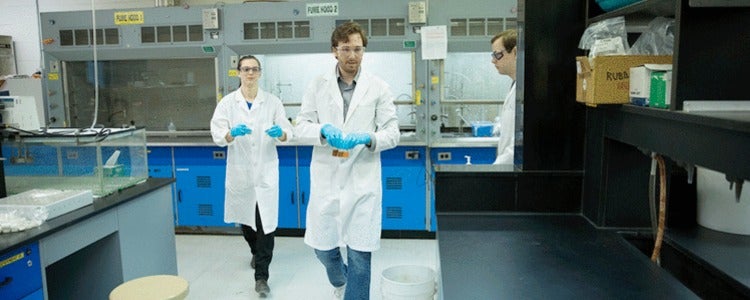
I have to balance my classes, labs, assignments, exams, and social life, in addition to all the commitments I have as a varsity swimmer.
Because of all of this, I’ve figured out how to manage my time properly and have come up with some strategies that will help you become a time management expert.
In first year, science students have a pretty rigorous schedule of 20+ hours a week filled with labs, tutorials, and lectures. Getting into the university groove takes time, but once you find what works for you, it all gets easier — I promise!
Hold on to your course outlines
In each class, you get a course outline (syllabus) on the first day and it lists all the deadlines for the entire term. Keep track of all assignments, midterms, projects, and exams on a one-or four-month calendar and put it somewhere that you can see easily (like the wall over your desk) so you won’t be “surprised” when it turns out you have a midterm tomorrow.
Keep track of commitments
It’s also a good idea to keep track of things on a more granular scale, like a weekly basis. Make sure you have a calendar of things like meetings, work shifts, and interviews.
If you can’t remember your class schedule after a couple weeks, include it in your weekly calendar so that you remember to show up. I always carry my weekly schedule with me, either on my phone or on paper, so I can refer to it quickly and easily.

Break down assignments and projects
Huge tasks are always daunting, but if you break them down into a number of smaller tasks, it becomes way more doable. For each small task, give it its own deadline so that you’ll stay on track and get the larger task done on time.
Start things as soon as possible
Look at your assignments right when you get them — it will get the gears going in your head and you can start to plan to out small study sessions and set a goal for each one. For example, if you have an eight-question assignment, you can plan to get two questions done in each of your study sessions. Starting lab write-ups right away is always advisable as well because the experiment will still be fresh in your mind. Starting things early also gives you enough time to ask your professor questions.
Tackling group projects
Sometimes group projects can be frustrating, but if you start them off the right way they can be very successful.

Making sure that everyone contributes equally and on time is often a problem. Communicating right from the beginning is key. Make each person’s role and tasks clear and make check-in deadlines so that everything will come together on time. Play to people’s strengths so that they’re more motivated to get the work done.
Another difficulty is finding a common time to meet. Use when2meet to find a time that works for everyone. Also, keep in mind that you don’t always have to meet in person. If you can do the meeting over the Internet, like over Skype or Google Hangout, it’ll save people travel time and be more convenient for everyone. It even works if someone has gone home for the weekend.
Find what works for you
Over time, you’ll develop your own time management habits. Remember though, something that works for you may not necessarily work for your friend. In general, though, keep track of your due dates and seek help when needed. You can also check out more resources from the Student Success Office.




